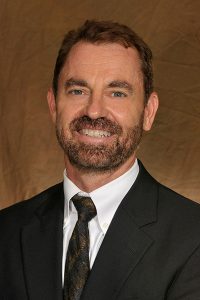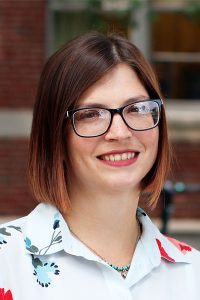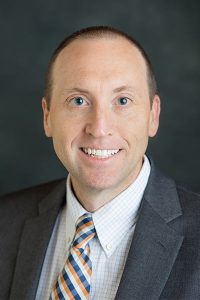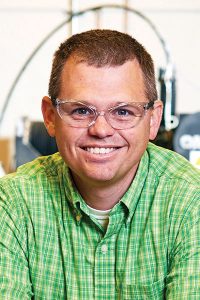Engineering Educators Chosen as Faculty Fellows for Technology-Enhanced Teaching
Four Tickle College of Engineering faculty members have been selected to join the inaugural cohort of UT’s faculty fellows for technology-enhanced teaching. UT Teaching and Learning Innovation and the Office of the Provost launched this program to help prepare UT educators for teaching this fall.
Participating TCE faculty are Kevin Kit, associate professor and director of the Cook Grand Challenge Honors program; Mike Berry, professor in EECS; Betsy Chesnutt, lecturer in the engage Engineering Fundamentals program; and Matthew Young, the Rosenberg Associate Professor of Practice in MABE.
The fellows will work through October 2020 in a mix of consultations, group sessions, and on the development of web-based and asynchronous resources in collaboration with Teaching and Learning Innovation and OIT staff. Fellows will submit brief weekly reports to document the reach and effectiveness of the program.

Mark Collins serves as faculty leader for the program. He is a distinguished lecturer and director of Technology-Enhanced Education in the Haslam College of Business.
The engineering members bring a range of experience in technology-enhanced teaching to the new cohort. Berry, for example, has offered online courses since 2016 that allow students to work through video lectures at their own pace, complete with homework and quiz deadlines each week.
“I have had about 75 students taking online courses with me each summer,” he said. “I hope to provide my experience with Canvas, Piazza, YouTube, and zyBooks to faculty wanting to re-design their courses for asynchronous online delivery.”
Chesnutt is grateful for the opportunity to collaborate with fellow faculty members to create and improve online courses.

“I’m also glad that UT is providing these resources to all faculty so that we can continue to provide students with the same high quality educational experiences, whether they are taking those classes on or off campus,” she said. “That really demonstrates UT’s commitment to student success at every level.”
Chesnutt sees an impetus in creating an engaging and inclusive environment for all students, and making sure there is a connection between faculty and students—something that can be more difficult in online class delivery.
“This type of human-centered course design can make a significant difference in a student’s level of engagement with the course and the university as a whole, which results in increased student retention and success,” she said.
Kit has, in recent years, worked with colleagues using Canvas, Zoom, and other platforms and technologies to effectively manage first-year courses.

“Our combined experience made for a fairly smooth transition to online teaching this past spring,” he said. “I think I will be able to help other instructors develop effective online or hybrid practices.”
Kit plans to setup meetings with groups of instructors to discuss course options and also meet one-on-one with instructors who have more specific needs and questions.
“I think it likely my fellow instructors will also be able to contribute good ideas,” he said. “As we proceed into the fall semester, I will likely be assisting with the details of the technology and online assessments.”
Young sees the program as a way to be on the front lines of adjusting to the shifting challenges of the COVID-19 pandemic, such as ensuring the ability to do practical, hands-on instruction in engineering disciplines.

“I am finding that this disruption has been a catalyst to force me to reevaluate my methods and outcomes,” said Young. “My hope is that my teaching becomes more impactful for students’ success, and that the lessons I am learning can be shared with other faculty as we move forward.”
“Historically, obstacles have motivated societies to seek innovative solutions that have far-reaching effects,” said Kit. “We are being forced to make drastic changes, but fortunately the university is providing great resources to help us effectively teach our courses in a different way. Some of these methods take advantage of new technology that allow us to more effectively connect with students and will persist after the restrictions are lifted.”